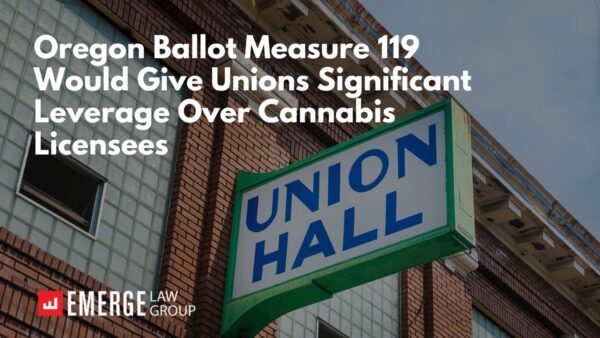CannaBeat is a curated biweekly selection of top new stories impacting business, research, and culture in the cannabis industry, crafted by Emerge Law Group.
Emerge’s Hot Take
During this year’s midterm election, two states approved recreational cannabis use. At this point, 39 states, and the District of Columbia (“DC”) have legalized cannabis for medical use, and 21 states and DC have also legalized recreational use; leaving 11 states banning cannabis altogether. See current map provided by MJ Biz Daily HERE. As the country awaits Congressional action on the sale and use of cannabis, these numbers beg the question… “what about interstate commerce?” Currently states limit cannabis sales within state lines under their state cannabis laws. These state-level restrictions are separate and aside from the federal controlled substances act and some commentators have asked whether such state restrictions are constitutional in the face of the dormant commerce clause. Multi-state operators must have complete and separate businesses in different states that cannot conduct business between each other in most circumstances. What now? Could an Oregon lawsuit push things forward?
Other Noteworthy News
The CannaBeat Podcast
Listen to our discussion with Senator Weiner on his newly chaptered SB 1186 which requires local jurisdiction to allow for medical delivery within the jurisdictional lines, even if they ban overall commercial cannabis activities.
Subscribe to CannaBeat to receive a curated biweekly selection of top new stories impacting business, research, and culture in the cannabis industry, crafted by Emerge Law Group, delivered straight to your inbox.






